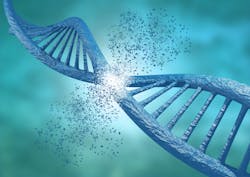Eighty percent of evaluable patients with transfusion-dependent beta-thalassemia who received the gene therapy betibeglogene autotemcel (Zynteglo, beti-cel) were still transfusion-free 3 years after treatment, according to data presented at the 64th annual meeting of the American Society of Hematology (ASH) in New Orleans. In a separate study, patients reported improved quality of life following gene therapy, including marked improvements in patients’ ability to work, attend school and be physically active.
The first study (Abstract 2348) included 63 patients enrolled in four consecutive studies. At 2 years follow-up, patients could enroll in a long-term study for up to 13 more years of follow-up. This analysis includes patients who have been followed for up to 7 years (median of 3.5 years) following treatment. Transfusion independence was defined as an average hemoglobin of at least 9 g/dL without packed red blood cell transfusions for at least 12 months.
Forty-nine patients remained transfusion independent at 3 years of follow-up. The percentage of evaluable patients who completed the study and achieved transfusion independence was 68% in the two initial studies and 89% in the two more-recent studies.
In addition, an exploratory multivariate analysis in patients from phase III studies (n=37) determined that the best predictor of clinical outcomes was the percentage of modified transduced with the BB305 lentiviral vector.
In the second analysis (Abstract 3665), researchers evaluated patient-reported quality of life. As of August 2021, 57 patients were enrolled in LTF-303; 26 (45.6%) were pediatric/adolescent patients and 31 (54.4%) were adults. Patients younger than 18 years were assessed using the Pediatric Quality of Life Inventory (PedsQL). Of those who achieved transfusion independence, the mean PedsQL total score increased from 77.4/100 at baseline (n=19) to 92.1 at 36 months (n=4).
Adult patients who achieved transfusion independence were evaluated with the Short Form-36 Health Survey Physical Component Summary (SF-36 PCS). The mean (SE) score increased from 53.8/100 at baseline (n=12) to 55.7/100 at 36 months (n=9). The researchers also developed a testimonial questionnaire given at 36 months, which showed the ability to seek employment or be employed, increased from 68.8% (11/16) of patients at baseline to 93.8% (15/16). Among pediatric and adolescent patients, there was a reduction in school absences from 83.3% (15/18) at baseline to 44.4% (4/9) at 36 months.

